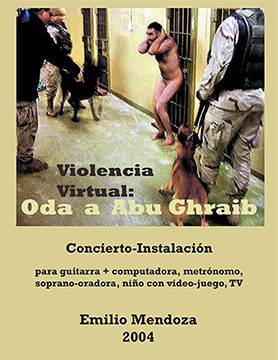

Virtual
Violence: Ode to Abu Ghraib is a live concert-installation and a
music concert at the same time, which expresses in a
theatretical way, as well as through music symbology, the state
of violence fed to us by the media and the imprisonment of
failed communication and isolation in our global
incommunicated existence. It wants to convey that the violence
present in our society and the use of it in different forms is
now being insistently brought into the society’s smaller social
cell, the family in its living room. This violence is virtual
and focused to us through the screens of our present life.
The composition
presents and criticizes the three most common ways of media
violence: comics and videogames, films and the news. However, it
concentrates on the war on terror that is being waged since 9/11
through the media, where each individual viewer is the potential
victim and recipient of the terror originating from each side,
where war is being waged thrugh the media by achieve=ing a
victory the side that gets more coverage, in seconds (TV,
radio), millimeters. (printed press) or clicks (internet). Abu
Ghraib was a media battle which hit very hard the USA, the same
way but in a smaller scale, as the 9/11 did. Each side wins or
looses depending on the hierarchy achieved in the news ranking
and exposure time, lessened by repetitious fatigue, theme
displacement or oblivion. If no news appear, then the war is
virtually over since there will be no attention paid to it by
anyone. The viewer is the ultmimate victim absorbing the rage
from each side, the violence and the terror to which he/she has
been exposed to.
The composition represents on stage the common habitat of our urban century: the evening of every day, the homely family around the TV set, father musician practicing his scales, the mother watching TV and the child isolated in his world of carnage in videogames. The television, teh eye to the global world, shows three customary events of media aggression: TV comics with heavy beatings, a “normal” film of violence with death and brutality, and the daily news of war and hostility, developing towards an emphasis on Iraq and the prison Abu Ghraib. The soprano, the symbol of the woman, bearer and creator of life, initiates a prayer in fast tempo (in any language), next to the sound of the metronome and the guitar scales, the videogame and the TV, her chant for peace.
The work is constituted of a live
accumulation of “chained” sound sources, a symbolic music
prison and hence its name, in the form of three performances of
fast diatonic scales for the guitar in increasing tempi locked
in time to the metronome to which the woman orator tries to
break up rhythmically through her simultaneous fast-chanting or
rapping. The whole performance is tied to the running TV video
in three stages (showing the comics, the film and the news), and
the young boy, although isolated from the rest, is tied to the
videogame from the beginning until the end, until the mother
succeeds in untying the “tempo prison”. The interaction between
the guitar and the soprano is musically challenging because the
player cannot fall out of the metronome, when the singer is
trying to pull him/her out of time or sometimes coinciding. The
resultant mixed-sound environment of scales, metronome,
chanting, TV and videogames, is also a sound-object of our
customary acoustic surroundings, where we usually find a TV
monitor anywhere we go. The performance should start exactly
seven minutes before the hour so that the third part, the news,
should actually come from CNN on its 8:00, 9:00 or 10:00pm news
broadcast. Once the “real” news starts, it will be changed to
the video news recorded where the Abu Ghraib photos appear. This
means in terms of time that the whole concert, public and
musicians are tied to the world media clock, which contributes
to the notion of our time-imprisonment.
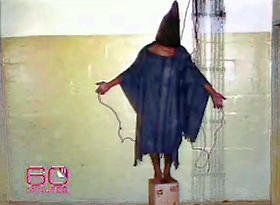
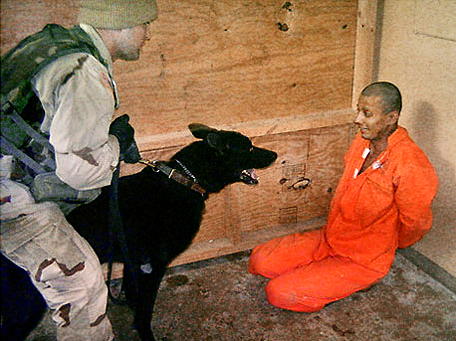
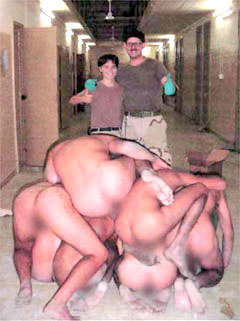
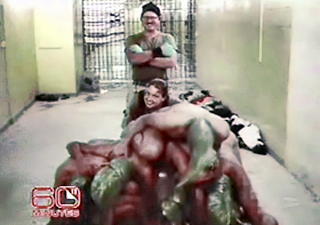
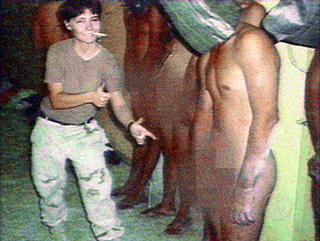
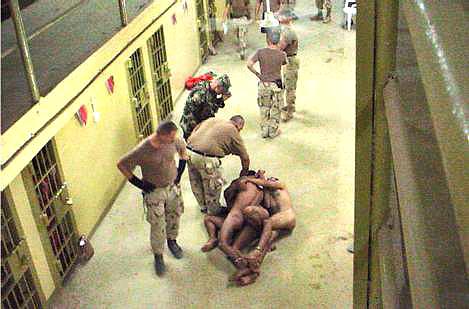
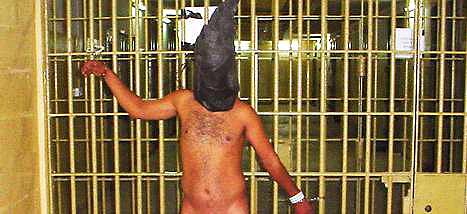
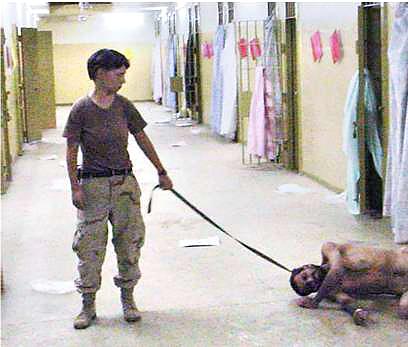
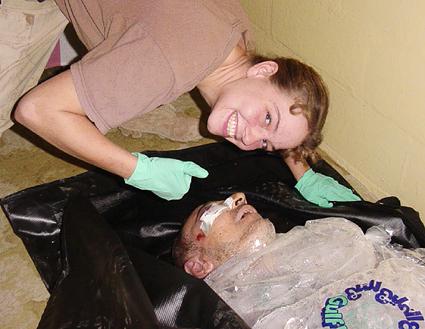
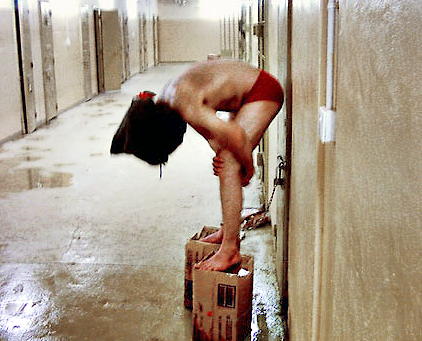
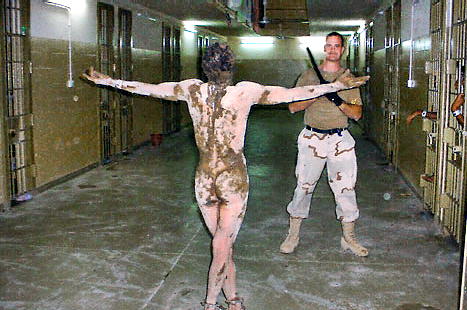
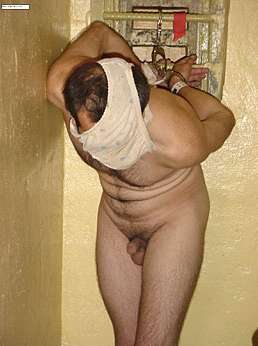
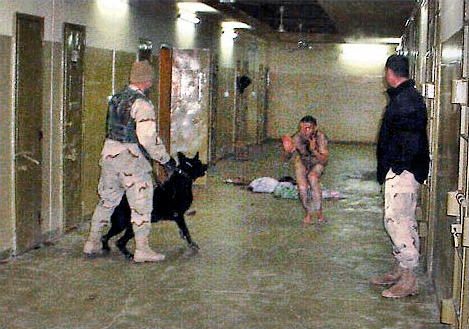
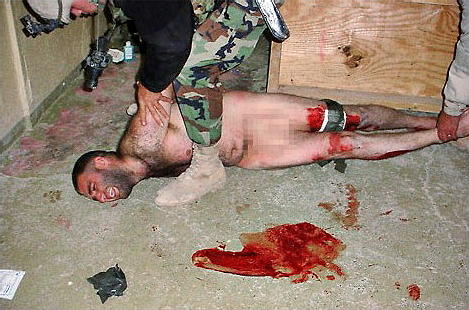
Additional information
The equipment necessary for the concert is:
• TV-monitor hooked to a videogame machine
with a violent game
• Video-beam or large monitor display hooked
to the laptop which has the video of the three parts.
• Sound amplification and mixer for the
soprano microphone (optional) and for the sound output from
videogame monitor, laptop through which the guitar, metronome
and the videos of the comics, film and news come out. Sound
balance must be rehearsed before the concert takes place.
• A chair, a table for the TV, a table for the
laptop, a lamp or plant or any symbol for “home living-room”
ambience.
Note:
• The guitar scales to be played are all
written by the author with details of tempo, fingering and
right-hand technique.
• It must be announced before the concert or
written in the program notes for the concert, that unpleasant
photographs of the Abu Ghraib case will be shown, but that these
are the same photographs that appeared in the public news.